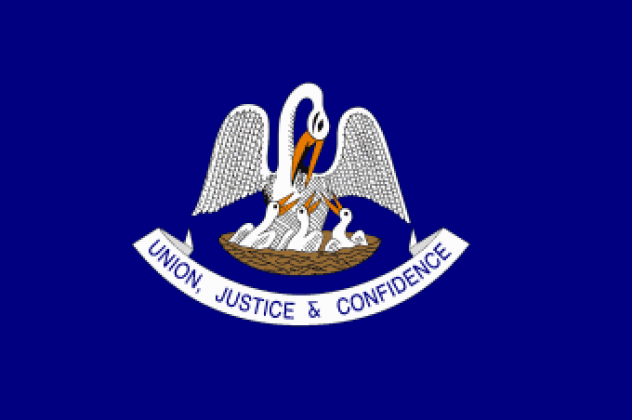
Jeremy Alford / LaPolitics.com
Republican strategist Karl Rove is expecting a “heckuva battle” over redistricting and the legislative races that will precede the process, according to an op-ed he wrote in The Wall Street Journal last week, and Louisiana will certainly be in the mix.
Rove, a top advisor to former President George W. Bush, suggested that “state legislative races in 16 states could determine House control in the 2020s,” and that our backyard could be part of the mix.
Redistricting occurs every 10 years on the state level so that election lines can be redrawn to reflect the latest decennial U.S. Census data. The next round in Louisiana is expected to take place in 2021.
“Both parties are targeting Louisiana and Texas,” he wrote. “The Bayou State holds legislative elections this fall. Democrats will try to grab six state Senate seats and narrow the GOP’s House majority in hope that pro-trial-lawyer Republican representatives will join in passing a Democratic-friendly redistricting plan.”
The last round of redistricting in Louisiana equated to a lost congressional district due to out-migration and other population trends.
But don’t expect more of the same, consultant and political strategist John Diez said during a forum on state politics last week hosted by the New Orleans/Bayou Chapter of Associated Builders and Contractors.
“That’s not what we’re looking at this time,” he said.
In an unrelated piece published by Time magazine, author Philip Elliott framed the coming national redistricting process as such: “Every 10 years, politics rewrites itself, starting with the decennial Census. Legislatures in 31 states use the findings to draw the borders of federal congressional districts. In some, nonpartisan commissions draw the lines clinically.”
He added, “In others, it comes down to who has the Sharpie and the least amount of shame.”
Supreme Court alters confidentiality rules
After fielding critiques from editorial writers and courtroom advocates about the handling of misconduct investigations of judges, the Louisiana Supreme Court decided to change its rules last week for handling private resolutions of judicial complaints.
The changes focus on the state Judiciary Commission, which was created in 1968 by a constitutional amendment and can recommend that the Supreme Court “censure, suspend with or without salary, remove from office, or involuntarily retire a judge” under certain circumstances.
The commission’s oversight is sweeping and includes justices and judges of all courts of the state, plus commissioners, magistrates, justices of the peace and “mayors who perform judicial functions.”
Up until now, the commission was able to carry out investigations and hearings practically in secret, and those who filed the complaints were expected to follow the same guidelines.
Now the commission or its partners can permit judges and others to discuss the matter publicly during certain parts of the process.
“Our rules should protect the integrity of the judicial discipline process while insuring public trust and confidence, and I believe these rule revisions accomplish that goal,” Chief Justice Bernette Joshua Johnson said upon releasing the rules.
The Judiciary Commission consists of nine members serving four-year terms, including:
— One court of appeal judge and two district judges selected by the Supreme Court
— Two attorneys admitted to the practice of law for at least 10 years and one attorney admitted to the practice of law for at least three but not more than 10 years, selected by the Conference of Court of Appeal judges
— Three citizens, not lawyers, judges or public officials, selected by the Louisiana District Judges Association
Political History: Louisiana’s fifth constitution
Last week was the 155th anniversary (Sept. 5, 1864) of Louisiana voters approving a document of fundamental law that abolished the act of slavery.
That constitution came to be Louisiana’s fifth, and it marked a major milestone. Under orders from President Abraham Lincoln, the occupying Union forces had to hand-pick delegates to rewrite the state’s charter.
The end product abolished slavery and gave black Union soldiers the right to vote. Its provisions, however, applied only to 13 Union-controlled parishes, because the Civil War had not yet ended.
Prior to that document, the state had another constitution from 1861, written by Confederates, that usually isn’t included in scholarly lists of Louisiana charters. That one was drafted to reflect the state’s secession from the Union.
Before that tide-turning event, the constitution of 1852 stood as the third version of Louisiana’s state charter. Delegates slightly weakened the governor’s powers in that document while creating more parishes, expanding public works, and adding justices to the state Supreme Court.
But what about the state’s 6th constitution, the one that followed the 1864 document?
Well, it only took four years for all hell to break loose. After an earlier convention effort devolved into a riot, the first state constitution to include a bill of rights became the last enacted under a Reconstruction government in 1868.
Penned by Union loyalists, this rendition deleted the so-called “Black Codes” and gave full citizenship and equal rights to black men.
Although this 1868 document broke new ground in Louisiana and in many parts of the South, Louisiana’s elected class in the ensuing years didn’t exactly adhere to its spirit or its letter.
They Said It
“Good to see my friends… especially my friends the nuns.” —State Sen. Dan Claitor, R-Baton Rouge, at a ribbon cutting for Our Lady of the Lake Hospital, via Twitter.
“The only time I did feel perfectly safe was inside my cell with the door locked.” —NBC News’ anchor Lester Holt, after spending a couple of nights in Angola Prison, in The Associated Press.
